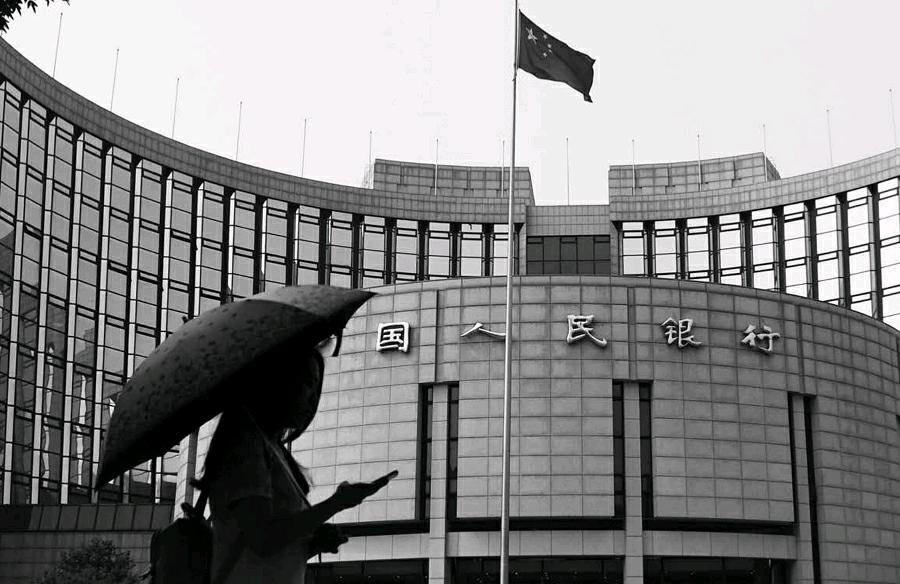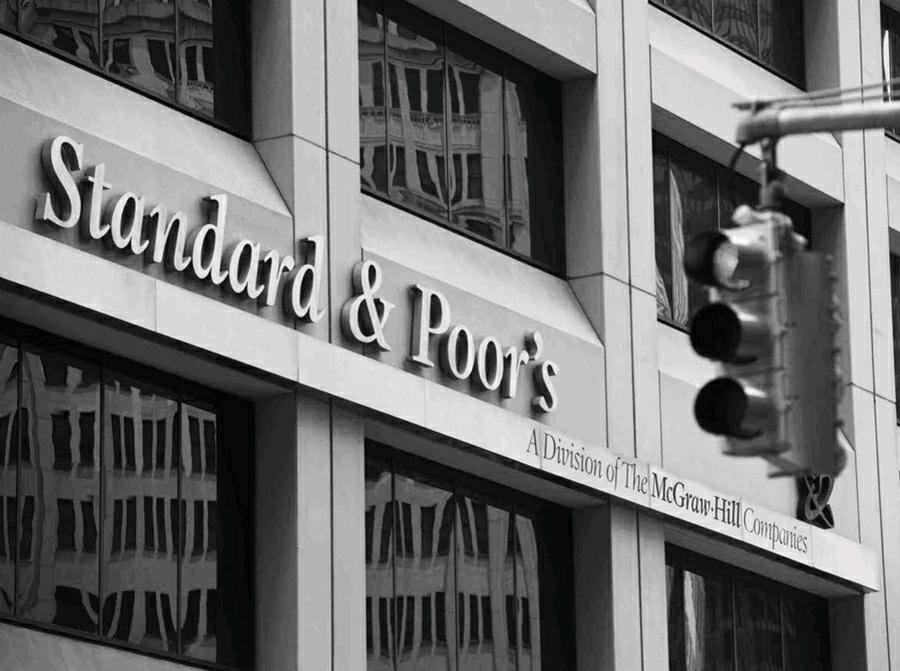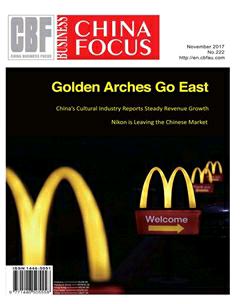China Widens Access to Financial Markets for Foreign Investors
China has specified the measures that will ease or lift foreign investment restrictions in its financial markets.
Foreign businesses will be allowed to own up to 51 percent of shares in joint ventures in securities, funds or futures, Vice Finance Minister Zhu Guangyao told on a press conference. The cap of limit will be phased out over three years. Restrictions on investment in Chinese banks and financial asset management companies will be removed, Zhu said, elaborating on the consensus reached by China and the United States at a meeting Thursday.
After three years, foreign investors will be allowed to own up to 51 percent of shares in joint ventures in life insurance and with the cap removed in five years. Duty on automobiles will be reduced “at an appropriate pace,” and restrictions on foreign investment in special and new energy vehicle manu- facture will be eased in free trade zones before next June. The same value added tax policy will be applied to domestic and imported distillers dried grains, which means charges at customs will be removed.
The US side was asked to ease controls on exports of high-tech products, fulfill its obligations under Article 15 of the Protocol on Chinas Accession to the World Trade Organization (WTO), treat Chinese investors fairly in the US market, push forward the license application process of China International Capital Corporation Limited in the United States and be prudent in trade remedy measures. According to Article 15, WTO members should have stopped using the surrogate country approach on China on Dec 11, 2016.
As China opens up its financial market to the world, global investors are increasingly adding Chinese stocks into their portfolio. The total value of domestic stocks held by overseas entities hit 1.02 trillion yuan ($154 billion) at the end of September, up from 700 billion yuan at the end of January this year, central bank data showed.
Foreign investors mainly bought Chinese shares through the ShanghaiHong Kong and Shenzhen-Hong Kong stock connect programs, which together saw foreign funds inflows of 326.3 billion yuan at the end of October. Investor interest in the domestic A-share market was particularly strong recently, evidenced by a surge in daily inflows of“northbound fund,” or money invested from Hong Kong into the Chinese mainland, which has averaged 1.6 billion yuan since mid-October, higher than 900 million yuan since the beginning of this year.endprint
Financial stocks and those in the consumer products industry were among the favorite picks among many foreign investors. Those invested via the Qualified Foreign Institutional Investor(QFII) program mainly chose to bet on bluechips in these industries, such as Bank of Beijing and liquor maker Kweichow Moutai. According to Gao Ting, an analyst with UBS, overseas investors tend to overweight Chinese consumer products stocks in their portfolio, and will likely increase their holdings after the inclusion of A-shares by global index provider MSCI.
Starting June next year, MSCI will include some China A-shares in its emerging markets index on a gradual basis. Since the announcement of the decision in June, applications to open accounts through the stock connect programs have surged, with increasing number of active investors in the market, Nomura Securities noted. The inclusion will bring about $15 billion to$20 billion into the Chinese capital market next year, estimated Wang Hanfeng, an analyst with China International Capital Corporation.
The growing interest from overseas investors was also driven by confidence in Chinas economic fundamentals, analysts said. Chinas economy continued steady expansion in the first three quarters, with growth at 6.9 percent yearon-year, above the government target of 6.5 percent for 2017. “We are quite bullish on Chinas economy in the long run. While the GDP number may not be as strong, we see great investment potential in technological innovation, globalization and increased profitability of firms.” said Shi Bin with UBS Asset Management. “Once we find good investment targets, well hold our position for the long-term. We dont sell shares just because it went up 10 percent,” Shi said.
Chinas stock market has been recovering steadily this year after market turmoil starting from the summer of 2015 once sent the major index below 3,000 points. The benchmark Shanghai Composite Index closed 0.14 percent higher Friday, at 3,432.67 points, the fifth straight day of rise.As more favorable conditions have emerged, it is high time for Chinas capital market to open even wider, Wu Qing, chairman of the Shanghai Stock Exchange,told Xinhua News Agency.
The exchange has initiated a research program to study the possibility of a Shanghai-London stock connect, Wu said. “Weve been actively participating in international rule-making and international governance of stock exchanges under the mechanism of World Federation of Exchanges. Our work has gained international recognition,” Wu said.endprint

It is high time for Chinas capital market to open wider to the world as more favorable conditions have emerged, according to Wu Qing, chairman of the Shanghai Stock Exchange(SSE). “Stable and healthy economic development has laid a solid foundation for the country to further open up its capital market,” said Wu in an exclusive interview with Xinhua.
In his opinion, the RMB exchange rate and cross-border capital flow remain stable; the countrys foreign exchange reserves are staying at a reasonable level; the Belt and Road Initiative is gaining more and more responses; market regulators have accumulated rich experience in cross-border supervision, investment protection and risk management; technically, local stock exchanges are in good condition, showcasing the countrys favorable conditions to open up its capital market. Progress has already been made in this respect, according to Wu.
“Key symbols of the capital market opening to the world range from the(dollar-denominated) Qualified Foreign Institutional Investor (QFII), Renminbi Qualified Foreign Institutional Investor (RQFII) and Qualified Domestic Institutional Investor (QDII) programs, Shanghai-Hong Kong Stock Connect to the MSCIs inclusion of Chinese Ashares,” said Wu. Thanks partly to these measures, more and more foreign investors have gained access to the countrys big capital market by setting up joint venture investment banks and fund management companies, according to Wu.
Sales of panda bonds, the yuan-denominated debt sold in China by foreign firms or governments, on the SSE alone has added up to 90 billion yuan (about$13.6 billion), accounting for nearly half of the total issuance. By the end of July this year, the accumulated issuance of Panda bonds reached 194 billion yuan, data of the Peoples Bank of China, the central bank, showed.
The country has been stepping up efforts in recent years to offer foreign investors wider access into the domestic financial market. The Shanghai-Hong Kong bond connect program was ap-proved in May this year, which allows investors from both sides to trade bonds on each others interbank markets. Despite progress, China should not slacken its efforts to further open up its capital market in order to make it better compatible with the national strength, according to Wu.
He said the SSE has initiated a research program to study the possibility of a Shanghai-London stock connect.“Weve been actively participating in international rule-making and international governance of stock exchanges under the mechanism of World Federation of Exchanges. Our work has gained international recognition,” Wu said. The SSE became part of the United Nations Sustainable Stock Exchange Initiative in September.endprint

However, significant gaps still remain between local stock exchanges and the worlds advanced bourses, he said.“The countrys degree of market openness remains relatively low, its capability in global resource allocation is far from strong,” said Wu. Taking the SSE as an example, the gross market value held by foreign investors takes up less than 2 percent of the total, pointing to a large potential for opening up in the sector.
In the future, the SSE will try to create better international exchange and cooperation mechanisms to serve the Belt and Road Initiative in a more efficient way, develop more internationalized exchange-traded products for investors and work with securities institutions as well as other professional organizations to boost global presence, Wu said.
China has potential to develop a deeper, more liquid capital market with greater choice of investment products, Mark Austen, the CEO of the Asia Securities Industry and Financial Markets Association (ASIFMA) said here on Wednesday. The ASIFMA released a report -- Chinas Capital Markets: Navigating the Road Ahead, providing recommendations on major asset classes on how to enable continued strong growth.
The likely end to a low-interest rate environment globally will lead to a more capital-constrained environment for developing markets, Austen told a press meeting. Chinas capital market has developed at a pace that has few parallels in history, Austen said, adding the coun- try is showing a promising willingness to improve investor access, expanding opportunities for domestic and foreign investors.
China has the potential to accelerate reform program for capital market development, based on the successful approach of utilizing experiments and pilot programs test cases for reform, he said. “We believe that with right reforms, China has an opportunity to learn from the experience of developed markets, avoid mistakes and leapfrog for their successes,” Austen said. endprint
endprint

